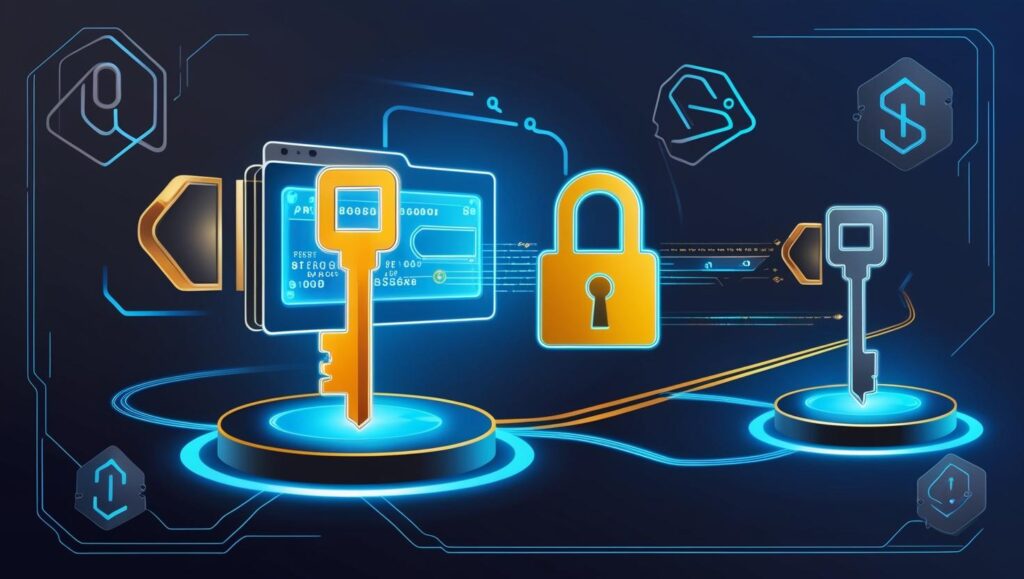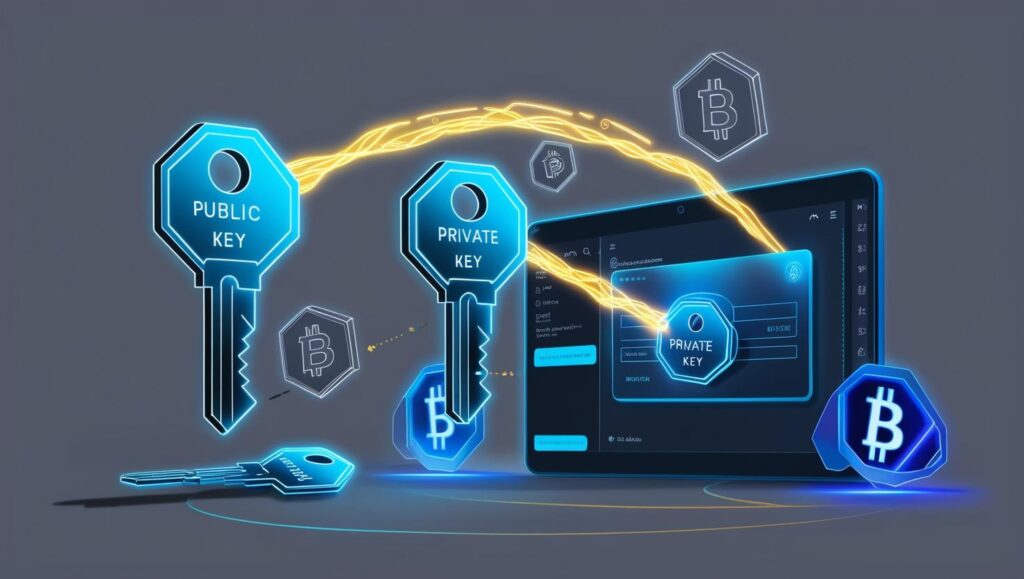Introduction In the world of blockchain and cryptocurrencies, security is the backbone of trust and transparency. But what ensures that digital transactions remain safe, private, and tamper-proof? The answer lies in cryptography—the foundation of all blockchain networks and digital assets. From securing Bitcoin transactions to powering decentralized applications, cryptography plays a crucial role in protecting user data, preventing fraud, and enabling trustless interactions. But how exactly does it work? Let’s break it down. 🔐🚀

What is Cryptography?
Cryptography is the science of encrypting and securing data so that only authorized parties can access it. In the context of cryptocurrency and blockchain, cryptography ensures that transactions remain private, secure, and immutable—meaning they cannot be altered once confirmed.
🔹 Key Principles of Cryptography:
✔ Encryption – Protecting data from unauthorized access by converting it into unreadable code.
✔ Decryption – Allowing only authorized users to convert encrypted data back into its original form.
✔ Authentication – Verifying identities to prevent fraud or unauthorized access.
✔ Hashing – Generating unique fingerprints for data, ensuring its integrity.
With these principles, cryptography enables secure and trustless transactions in blockchain networks.
How Cryptography Secures Blockchain Transactions
One of the most revolutionary aspects of blockchain technology is its decentralized and tamper-proof nature. This is made possible by cryptographic mechanisms such as public-key cryptography, hashing, and digital signatures.
🔹 Public-Key Cryptography (Asymmetric Encryption)
In blockchain, every user has a public key (visible to everyone) and a private key (kept secret). When a transaction is made, the sender signs it with their private key, and the network verifies it using the sender’s public key. This ensures: ✔ Only the rightful owner can initiate a transaction.
✔ Transactions are authenticated without revealing sensitive data.
✔ No third party is required to verify transactions.
🔹 Hash Functions (Data Integrity & Immutability)
A hash function converts transaction data into a fixed-length unique code (hash). Every block in the blockchain contains the hash of the previous block, creating a chain of secure and unalterable records. ✔ Prevents tampering – Any change in transaction data will alter the hash, alerting the network.
✔ Ensures transparency – Transactions are permanently recorded on the blockchain.
✔ Used in Proof-of-Work & Proof-of-Stake mechanisms for consensus.
🔹 Digital Signatures (Verification & Authentication)
Every transaction on the blockchain is signed with a digital signature, which is mathematically generated using the sender’s private key. The recipient verifies it using the sender’s public key. ✔ Prevents fraud & counterfeiting – Ensures that no one can forge a signature.
✔ Ensures non-repudiation – Once signed, a transaction cannot be denied by the sender.
These cryptographic mechanisms make blockchain technology secure, trustless, and tamper-proof.

The Role of Cryptography in Crypto Wallets & Private Keys
Your crypto wallet relies on cryptography to protect your assets. When you create a wallet, it generates: ✔ A Private Key – A secret code that grants access to your crypto holdings.
✔ A Public Key – A unique identifier (like an address) that others use to send you funds.
If your private key is lost or exposed, your funds can be stolen—therefore, wallet security is essential! 🔐
📢 Best Practices for Keeping Your Private Keys Secure:
✅ Never share your private key with anyone.
✅ Use hardware wallets or cold storage for long-term security.
✅ Enable multi-factor authentication (MFA) for added protection.
✅ Store backups in multiple secure locations.
With cryptographic security, users can have full control over their digital assets without relying on banks or third parties.
How KK4 Utilizes Cryptography for Enhanced Security
At KK4, we prioritize security and decentralization by implementing advanced cryptographic techniques in our ecosystem.
🔹 Secure Transactions – Every KK4 token transfer is cryptographically signed, ensuring authenticity.
🔹 Smart Contract Security – Our smart contracts use hashing & digital signatures to automate transactions with full transparency.
🔹 Decentralized Staking & Rewards – KK4 staking mechanisms leverage cryptography to protect user funds and ensure fair distribution.
🔹 Web3 & NFT Integration – NFT ownership is secured using cryptographic hashes, making it verifiable on the blockchain.
With KK4’s robust security measures, users can confidently engage in staking, gaming, and crypto rewards—without worrying about security risks.

Claim 1000 KK4 Tokens Daily!
🎉 To celebrate blockchain security, we’re giving away 1000 KK4 tokens daily! Want to participate? Follow these steps:
1️⃣ Follow KK4 on all social media platforms
2️⃣ Drop your Solflare wallet address in the comments of our latest video.
3️⃣ Paste your wallet address under our latest Twitter post.
🔗 Claim Your KK4 Airdrop Here:
